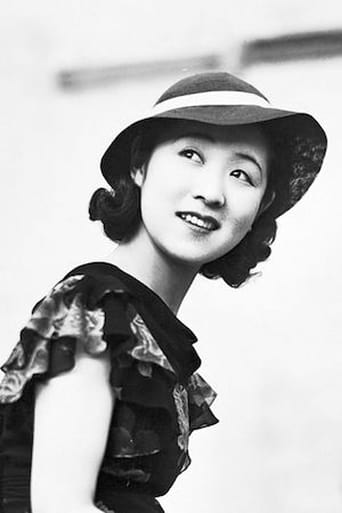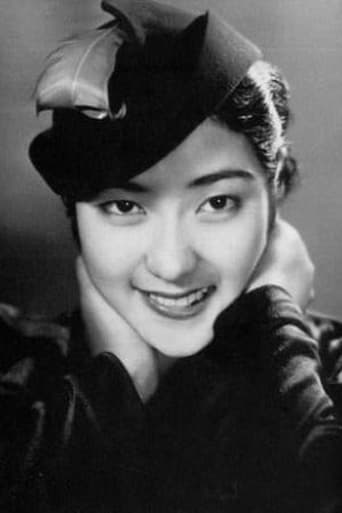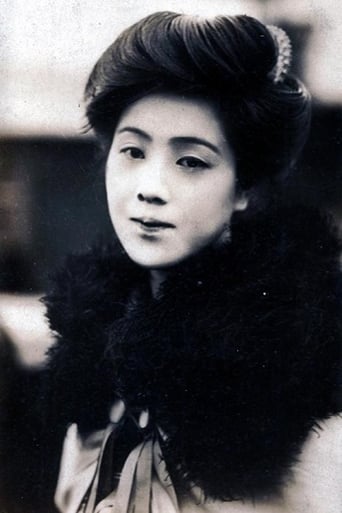Interesteg
What makes it different from others?
FeistyUpper
If you don't like this, we can't be friends.
Beanbioca
As Good As It Gets
Nicole
I enjoyed watching this film and would recommend other to give it a try , (as I am) but this movie, although enjoyable to watch due to the better than average acting fails to add anything new to its storyline that is all too familiar to these types of movies.
Uriah43
This film was produced not long after World War II when Japan was militarily defeated and its economy in total ruins. As a result a large number of people were left without money and employment was sometimes difficult to obtain. That being said, this film depicts three women who have to struggle in that regard. The first woman, "Fusaka Owada" (Kinuyo Tanaka) has just lost her young son to tuberculosis just after being informed that her husband has passed away while serving in the military. Luckily, she manages to get a job as an executive secretary working for a man she greatly admires. The second woman named "Natsuko Kimishima" (Sanae Takasugi) is her sister who has recently moved in with her and works as a dancer at a nightclub. The third woman, "Kumiko Owada" (Tomie Tsunoda) is also very close to both Fusaka and Natsuko but decides to run away from where she is living in search of something new and exciting. For her efforts she falls in with the wrong crowd and is subsequently raped and forced to become a prostitute. Now rather than reveal any more I will just say that I found this movie to be a bit too dark and brutally harsh for my tastes. No doubt others will disagree and that is fine. However, the relentless savagery depicted by the director (Kenji Mizoguchi) was overdone in my view and because of that I have rated it accordingly. Average.
WILLIAM FLANIGAN
Vewed on DVD. Restoration = one (1) star. Director Kenji Mizoguchi's highly repetitive story of life among the street-walking prostitutes in postwar Osaka. Apparently the Director did not feel viewers would get his message (that these women occupy the bottom strata of society) the first time. So he keeps re-sending it throughout the film. This movie is too long, and padding appears to have been inserted so as to stretch the duration of the photo play beyond an hour. The Director postulates that there is a street-walker's "code of conduct" that is enforced by the hookers themselves to prevent prostitutes from going straight. (Of course, this makes for business nonsense, since fewer hookers could demand higher prices. Or is the Director simply regurgitating the ancient saw that "misery loves company"?) Acting is amateurish (you probably have seen better in high school plays), obviously staged (as a result of poor direction and editing), and frequently simply silly. Street scenes shot outside the studio are of historical value, since they show what Osaka looked like 2-3 years after the occupation. The film opens with an elevated roof-top pan across central Osaka which is by far the most interesting part of the movie! This DVD is little more than a wrapper for badly deteriorated original source material, and is among the worse I have encountered for a legitimate commercial release. "Restoration" seems to have been limited to removing reel change-over marks! Video is murky through out, and audio sounds like there is cement mixer always running in the background. Wear marks are ever present, especially during the opening credits. Audio does not kick in until the opening credits are well under way. Subtitles are okay (and help the viewer to deal with the Kansai-Ben dialog). The film "score" is a joke. Music accompanying the opening credits sounds like what you might expect from a 1930's shoe-string serial. There are two simultaneous musical performances used for the closing credits, one piled on top of the other! Cinematography (narrow screen, shades of gray) and lighting are undistinguished. Studio exterior sets depicting bombed out slums look pretty phony. Aggressively avoid this turkey! WILLIAM FLANIGAN, PhD.
Michael_Elliott
Women of the Night (1948) *** 1/2 (out of 4) Set in post WWII Japan, director Kenji Mizoguchi's film deals with a pair of sisters (Kinuyo Tanaka, Sanae Takasugi) who find themselves going into prostitution due to the rather dire living conditions. WOMEN OF THE NIGHT is certainly a hard-hitting little gem that manages to hold no punches in regards to its subject matter. Several countries released films dealing with the aftermath of WWII but what's so fascinating about this film is the fact that it deals with subjects that most other places wouldn't touch. This includes prostitution obviously but there's also abortion, drug use, sexual transmitted diseases and other subjects that were a big no-no during this era. This off-topic subjects certainly help keep the film very fresh for today's viewers. Another fascinating thing were some of the streets where it's obvious they haven't been fixed up since WWII. I'm guessing these streets with debris all over them weren't just made up for the film and instead they are actually locations and these images really make you understand the desperate situation of the people living there. We get three different women and their stories of how they were forced to go into the business and each of them are quite touching on their own. I will say that the ending was a bit over-the-top and didn't reach the punch it was going for but it certainly didn't ruin the movie. The two lead performances are certainly wonderful and they're just so raw that you feel as if you're watching real people struggling. There are some rather bleak and ugly images to be found here and especially during a sequence where we see the downside of this lifestyle as most of the women are suffering from various mental problems. WOMEN OF THE NIGHT runs a very quick 74-minutes and it's certainly quite memorable.
gavin6942
Fusako Owada, a young woman in postwar Japan, is the mistress of a notorious drug dealer. Fusako's tenuous grasp on meaningful life is shaken when she learns that her lover is having an affair with her sister.This film is generally dismissed as one of Mizoguchi's "lesser" films, and has been called a "good melodrama" -- something of a backhanded compliment. I like to think it was a bit more than that.Aside from the drug aspect and the sister relationship, just the mistress status alone is worth examining. This is a very emotional part, as can be seen when the secretary asks if her boss really likes her. He gives a response along the lines of "I will try to be more affectionate." She is craving real love, and he is only acting the part...



